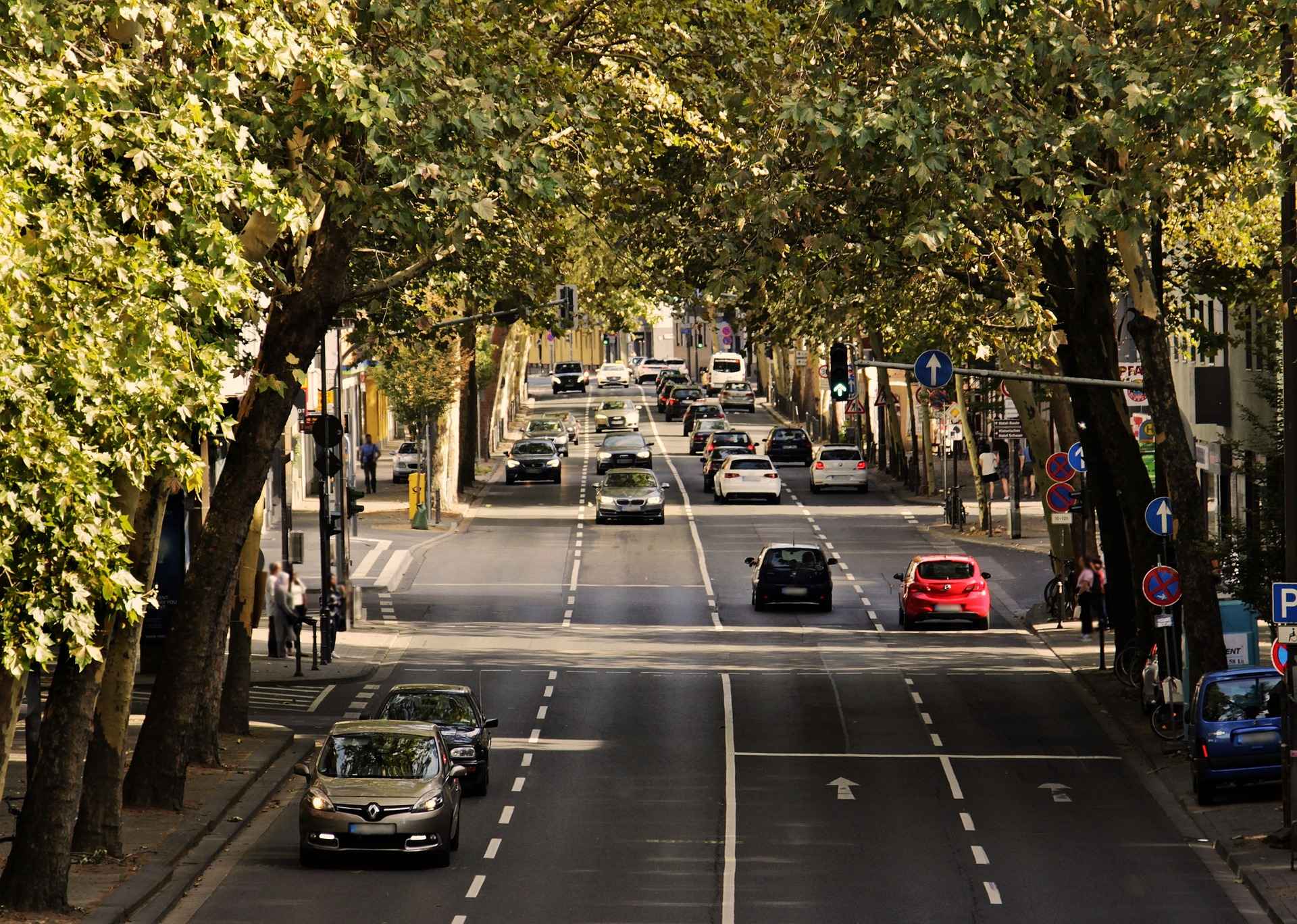Sustainable mobility: interview with the ministry's citizen advisors
Bildung
Mobilität
Andere
Dear climate activists, we are very pleased that the Ministry of Transport has taken the time to answer our questions about sustainable mobility. The citizens' representatives have their say here and give us an exciting insight into their work. After all, sustainability is also a process of dialog - which is why the direct line to the ministry is another facet of sustainability. Here are our questions and the answers from the ministry:
What exactly does a citizen's advisor for transportation do? What is he there for?
Citizen advisors always have an open ear for suggestions and criticism, they help with words and deeds and provide guidance. In 2011, the state of Baden-Württemberg introduced the position of a State Councilor for Civil Society and Citizen Participation at the Ministry of State. At the same time, the corresponding positions of "Bürgerreferent:innen" were created in all state ministries. This first central point of contact for citizens' questions can also be found in all four regional councils of the state.
At the Ministry of Transport, the position of citizen advisor is currently held by two women.
As citizen advisors, we are the first point of contact for citizens who contact the Ministry of Transport with questions or suggestions. Our most important task is to establish a citizen-oriented communication between the Ministry of Transport and the citizens. We answer their inquiries in coordination with the respective departments and thus support our colleagues in communicating with the outside world. On the phone, we provide information on the areas of responsibility of the Ministry of Transport.
This means: We can only provide information on inquiries that concern the area of responsibility of the Ministry of Transport. We cannot answer any questions of a traffic-related nature for which the Ministry of Transport is not responsible. This includes, for example, questions about the autobahn or forgotten luggage on a Deutsche Bahn train.
As citizen advisors, we act as an interface between the citizenry and the administration. Every day, we try to explain the policies of the House to the public in a way that is easy to understand and to explain the interrelationships. Our goal is to provide guidance, answer questions and point people to the right contact person.
What concerns do you receive most frequently and from whom?
The concerns of citizens are as diverse as the topic of mobility as a whole.
The Ministry of Transport receives the most inquiries about topics that directly affect or concern citizens in their everyday lives - here we can hardly distinguish between people from urban or rural regions. For example, a large proportion of the letters we receive deal with public transport. Questions, suggestions and expressions of opinion on the subject account for a good third of the inquiries we receive. Many people contact us on the subject of traffic law and road safety. The Road Traffic Act (StvO) also plays a role more frequently with questions about speed limits, traffic signs, parking, driver's license law or vehicle registration. A "perennial issue" is the topic of noise protection. We also receive many questions about bicycle traffic, the expansion of bicycle lanes, or funding opportunities in the area of electromobility. In our day-to-day work, we repeatedly find that people in Baden-Württemberg want to play a committed role in their region. We are happy to give them the opportunity to bring their suggestions to the ministry.
In our communications, we attach particular importance to treating each other with respect. We therefore do not respond to insulting, vulgar, inhuman or racist letters as a matter of principle. We also draw attention to this on our homepage.
Can you give us a concrete example of your work and how it relates to the issue of sustainable mobility?
Letters from citizens reach the Ministry of Transport in various ways: by telephone, by mail, as an e-mail or via the contact form on our homepage. All inquiries are placed in an electronic file so that all aspects can be fully processed in terms of content. Then we get started and proceed chronologically. We read through each message and check whether it is a citizen's inquiry, whether a specific concern or question is identifiable, and whether it falls within the ministry's jurisdiction. In many cases, we can draw on responses from previous inquiries or, consider public information from our office. If we need support in terms of content, we contact the relevant department in the house and request more detailed information from them. As soon as we have a response in the electronic file, the inquiry lands back with us and we formulate a response to the citizen.
It is more common for people to describe their personal situation to us and hope for direct redress from the Department of Transportation, which we are rarely able to provide. We cannot, of course, revoke traffic tickets or interfere with the planning sovereignty of municipalities. Nor can we change federal regulations. People often misjudge the Department's authority and scope of responsibility. However, that is exactly what we are here for: we provide orientation and show what our ministry is committed to and what it is responsible for. For everything else, we refer to the relevant contact persons outside our company.
According to the Ministry of Transport, what is the biggest hurdle in achieving sustainable mobility, and what role do contradictions such as: "Many vehicles mean higher risk of congestion, more roads theoretically equalize congestion, but then lead to even more vehicles, which in turn cause new congestion," etc.? How do you deal with contradictions or conflicting interests and best resolve these contradictions?
As citizen advocates, we are responsible for communicating information about issues in the Department of Transportation. We can only receive House goals that have already been published. Formulating political goals and the political classification of measures is not our task. We are therefore unable to comment on this.
How will traffic in and around Stuttgart and in the Ländle region become sustainable? What is your vision for the future? Do you also see opportunities for digital solutions or similar here?
To answer this question, we asked Transport Minister Winfried Hermann. His answer is: "Over 70 percent of kilometers driven are done by car. Almost 80 percent of goods are transported by truck. In addition to the shift to environmentally friendly means of transport, the electrification of road traffic is of great importance for climate protection. Only with a rapid turnaround in drive systems will we achieve the climate targets by 2030."
***
We from the Climate Community think there is nothing to add to this and would like to take this opportunity to thank the Ministry and the Citizens' Advisors for Mobility once again for this interview!



